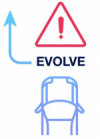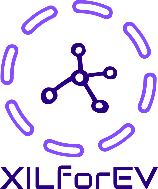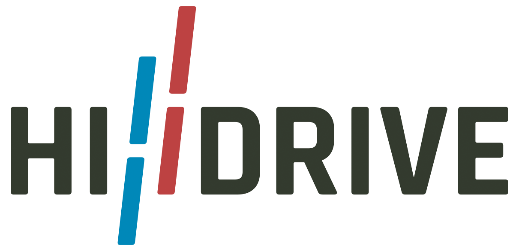Research Projects - Current

SafeVRU - Safe Interaction of Automated Vehicles with Vulnerable Road Users (2017-2022, NWO-TTW)
Address the interaction of highly automated vehicles with vulnerable road users (VRU) such as pedestrians and cyclists, in the context of future urban mobility. Pursue an integrated approach, covering the spectrum of VRU sensing, cooperative localization, behaviour modeling & intent recognition and vehicle control. Coordinator: TU Delft. User Group: TNO, NXP, 2GetThere, SWOV, RDW.
Contact: Prof. Dr. D. M. Gavrila

Efficient Deep Learning - P6 Mobile Robotics (2019-2024, NWO-TTW)
Project P6 on mobile robotics (MRob) addresses environment perception, mapping and localization for an outdoor mobile robot (i.e. highly automated vehicle) by means of Deep Learning.The aim is to increase both performance and data/computational efficiency.
https://efficientdeeplearning.nl/
Coordinator: TU Delft. User Group: TomTom, 2GetThere, TNO and NXP.
Contact: Prof. Dr. D. M. Gavrila

Epistemic-AI (2021-2025, EU-Horizon2020)
Currently, AI systems have difficulties to operate in new situations, e.g. driving in heavy rain or to other road users’ different styles of driving. Epistemic AI’s aims to create a new paradigm for a next-generation AI providing worst-case guarantees on its predictions thanks to a proper modelling of real-world uncertainties.
https://www.epistemic-ai.eu/
Coordinator: Oxford Brookes. Consortium: Oxford Brookes, KU Leuven, TU Delft.
Contact: Dr. J. F. P. Kooij

3DUU - 3D Urban Understanding (2020-2025, Delft AI Lab)
The 3DUU Lab is a collaborative lab between 3D Geoinformation Group (BKE Faculty) and the Intelligent Vehicles Group (3ME Faculty). We will develop new methods and techniques to automatically recognise and model objects in the built environment in 3D. We combine data from different sources, such as aerial photos and laser scanners on vehicles. Using AI, we will allow computers to learn and work with them so that we can automatically process and interpret large amounts of urban data.
https://www.tudelft.nl/en/ai/3duu/
Coordinator: BKE Faculty.
Contact: Dr. J. F. P. Kooij

OWHEEL, Benchmarking of Wheel Corner Concepts Towards Optimal Comfort by Automated Driving
(2020-2024, EU H2020-MSCA-RISE)
The project OWHEEL aims at the development and evaluation of new concepts of automotive wheel corners as crucial elements of future vehicle architecture tailored to provide optimal comfort during automated driving.
Coordinator: Tenneco Inc.
Contact: Dr. B. Shyrokau
EVOLVE, Control of evasive manoeuvres for automated driving: solving the edge cases
(2020-2024, NWO Open Technology Programme)
EVOLVE aims at tackling these edge cases by means of an enhanced physics + data-based learning approach. Ingredients of EVOLVE are road/tyre force sensing technologies and pro-active control for collision avoidance situations.
Coordinator: TU Delft
Contact: Dr. B. Shyrokau
MSS, Motion and Simulator Sickness: Modelling, Prediction and Applications
(2020-2024, TU Delft Industrial Public Partnership with Toyota Motor Europe)
The project focuses on novel models of motion sickness, motion planning and control, and simulator motion cueing algorithms including human perception and comfort. These will result in new design methods ensuring comfort of automated vehicles using a combination of vehicle tests, driving simulator studies and comfort perception models.
Contact: Dr. B. Shyrokau
XILforEV, Connected and Shared X-in-the-loop Environment for Electric Vehicles Development
(2021-2022, Horizon 2020)
XILforEV project strives for developing a complex experimental environment for designing electric vehicles (EV) and their systems, which connects test platforms and setups from different domains and situated in different geographical locations.
Coordinator: Technische Universität Ilmenau
Contact: Dr. B. Shyrokau
HiDrive, Large-scale, cross-border demonstration of connected and highly automated driving functions for passenger cars
(2021-2025, Horizon 2020)
HiDrive addresses key challenges towards deployment of higher automation levels, building upon the earlier large scale projects EUROFOT, Adaptive and L3Pilot. The Intelligent Vehicle section contributes in particular to SP4 and SP6 with a focus on human factors and motion comfort.
Coordinator: Volkswagen
Contact Dr. R. Happee
SHAPE-IT, Supporting the interaction of Humans and Automated vehicles
(2019-2023, Horizon 2020)
SHAPE-IT investigates and enhances the human interaction with automated vehicles from the perspective of drivers, passengers and other road users including pedestrians and cyclists. TU Delft employs 3 PhD candidates in SHAPE-IT on perceived safety, pedestrian interaction, and cyclist interaction.
Coordinator : Chalmers University of Technology
Contact Dr. R. Happee
HADRIAN, Holistic Approach for Driver Role Integration and Automation Allocation for European Mobility Needs
(2019-2022, Horizon 2020)
HADRIAN investigates and enhances the driver interaction with automated vehicles with a focus on new driver roles for “office workers in cars and trucks” using the driving time operating digital devices, and “elderly drivers” where automation can enhance safety and mobility. TU Delft focuses on perceived safety and interfaces.
Contact Dr. R. Happee
Research Projects - Past

IAVTRM - From Individual Automated Vehicles to Cooperative Traffic Management (2014-2019, NWO TTW)
The human interaction with automation will be investigated in driving simulators, on a test track, on a closed highway and in mixed traffic on public highways, to quantify use and disuse of automation, human behaviour in mode transitions as well as trust, acceptance, and mode awareness.
Coordinator: TU Delft. Partners:, Toyota Motor Europe, TNO, SWOV, NXP, Imtech Traffic & Infra, RDW, Connekt, Technolution, Almende, V-tron, Trinité Automation.
Contact: Dr. R. Happee

I-AT (Interregional Automated Transport (2017-2021, Interreg)
Driverless shuttles are developed to operate in Wageningen, Airport Weeze and Aachen-Vaals. Partners: Province of Gelderland, HAN, Spring, Veenis, van Boekel, ASEAG, TU Delft, V-Tron, FromAtoB, projaegt, DYNTEQ, Royal Haskoning GMBH, Robot Engineering Systems, Zwart UG, Becker Büttner Held, Noot Personenbevoer, Airport Weeze Flughafen Niederrhein, Qing Mechatronics.
Contact: Dr. R. Happee
EVE - Innovative Engineering of Ground Vehicles with Integrated Chassis Systems (2015-2017, EU H2020)
Innovation technologies in ground vehicle engineering require strong interdisciplinary and intersectoral investigations with an international dimension. In this context the project EVE proposes sustainable approach based on intensive staff exchange that leads to collaborative research and training between universities and industrial organizations from Germany, Belgium, Spain, The Netherlands, South Africa, and the USA. The project objectives are focused on the development of (i) experimental tyre database that can be used in the design of new chassis control systems, (ii) advanced models of ground vehicles and automotive subsystems for real-time applications, and (iii) novel integrated chassis control methods.
Partners: TU Delft, TU Ilmenau, Chalmers University of Technology, ITA, Tenneco Inc., dSPACE GmbH, SKF BV, University of Pretoria, Virginia Tech, Gerotek, ESTEQ Engineering Ltd.
Contact: Dr. B. Shyrokau

S4-DRIVE - Standardized Self-Diagnostic Sensing Systems for Highly Automated Driving (2015-2019, NWO-TTW)
Automated driving requires the environment perception sensors to be aware of their quality-of-service. Can the sensors still sense the traffic ahead, even when it snows? Do the combined sensors provide environment perception of a sufficient accuracy and reliability to define safe path and speed control strategies? Coordinator: TU Delft, User Group: NXP, TNO, Toyota Motor Europe, Tata Motors European Tech. Centre, Technolution, InnoSenT GmbH, Melexis, VisLab.
Contact: Dr. R. Happee
ITEAM - Interdisciplinary Training Network in Multi-Actuated Ground Vehicles (2016-2019, EU H2020)
The main target of the ITEAM project is to establish and sustainably maintain the European training network with high inter-disciplinarily, which will train strong specialists skilled in research and development of novel technologies in the field of multi-actuated ground vehicles (MAGV). The global goals are: (i) Advance of European postgraduate education in the area of environment- and user-friendly vehicle technologies that highly demanded by the European industry and society; (ii) Reinforcement of cooperation between academia and industry to improve career perspectives of talented graduates in both public and private sectors; (iii) Creation of strong European research and innovation group making determinant contributions to next generations of multi-actuated ground vehicles. To achieve the project objectives, the consortium unites 11 beneficiaries and 5 partner organizations from 9 European countries including 7 universities, 2 research centres, and 7 non-academic organizations. Partners: TU Ilmenau, AVL, University of Technology of Compiègne, Conventry University, Flanders Make, Infinion Technologies AG, KU Leuven, SKODA AUTO, University of Pavia, VIRTUAL VEHICLE Research Center, Volvo Car Group, IPG Automotive GmbH, Jaguar Land Rover Ltd., TU Delft, The University of Liverpool, Institute of Information Theory and Automation.
Contact: Dr. B. Shyrokau

Truck Merging Support - Step Towards Automated Driving (2013-2017, NWO-TTW)
Project focus is on a specific safety-critical highway task: merging. Using wheel load measurements, steering system measurements, and RADAR we will obtain a precise understanding of the lateral merging motion of modern trucks. Using this information, a merging assistant will be developed, a system that will provide adaptive levels of support varying from providing information to enhance driver situation awareness, towards guidance and automation. Human machine interfaces will optimally combine haptic (force), acoustic and visual cues. The system will be experimentally evaluated in a driving simulator, with specific focus on evaluating safety and human factors side effects such as behavioural adaptation. Coordinator: TU Delft. Partners: TU/e, DAF, NXP, TNO, SKF.
Contact: Dr. B. Shyrokau
WePod (2015-2016)
Driverless shuttles have been developed to operate in mixed traffic at low speed, connecting the Ede-Wageningen station and the Wageningen University (province of Gelderland), in view of on-demand 24/7 driverless transportation.
Coordinator: TU Delft. Partners: Spring, Mapscape, RCS, Technolution, Ibeo, EasyMile
Contact: R. Happee
HF Auto - Human Factors of Automated Driving (2013 - 2017, EU FP7)
HFAuto investigates human behaviour in automated driving using extensive driving simulator studies with a newly developed driver state monitor. A multimodal HMI will be developed supporting the driver in HAD and in transitions between automated and manual driving. Driver cognition and behaviour will be captured in mathematical driver and traffic flow models. Using this methodology we will predict benefits of HAD in terms of enhanced safety, traffic efficiency and eco-driving before system introduction. Taking into account legal, human and technical requirements a roadmap for market introduction of HAD will be proposed. Partners: TU Delft, TU Munich, Univ. of Southampton, Chalmers Univ. of Techn, Univ. of Twente, IFSTTAR, VTI, Volvo Technology Cooperation, Volvo Car Corporation, BMW, Jaguar Land Rover, Toyota Motor Europe, Continental Automotive GmbH, TNO and SWOV.
Contact: Dr. R. Happee









